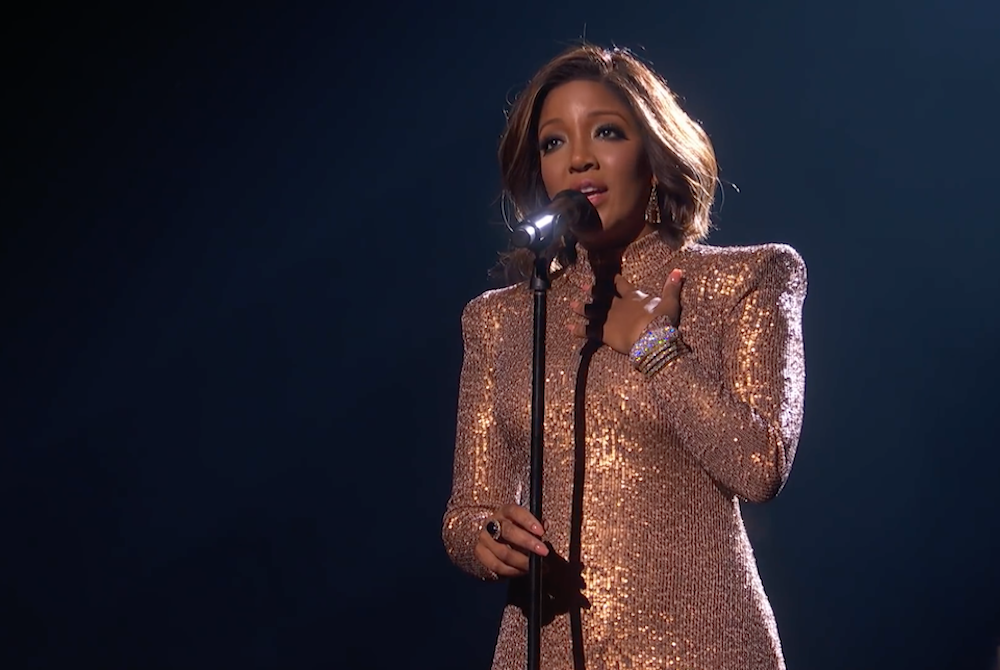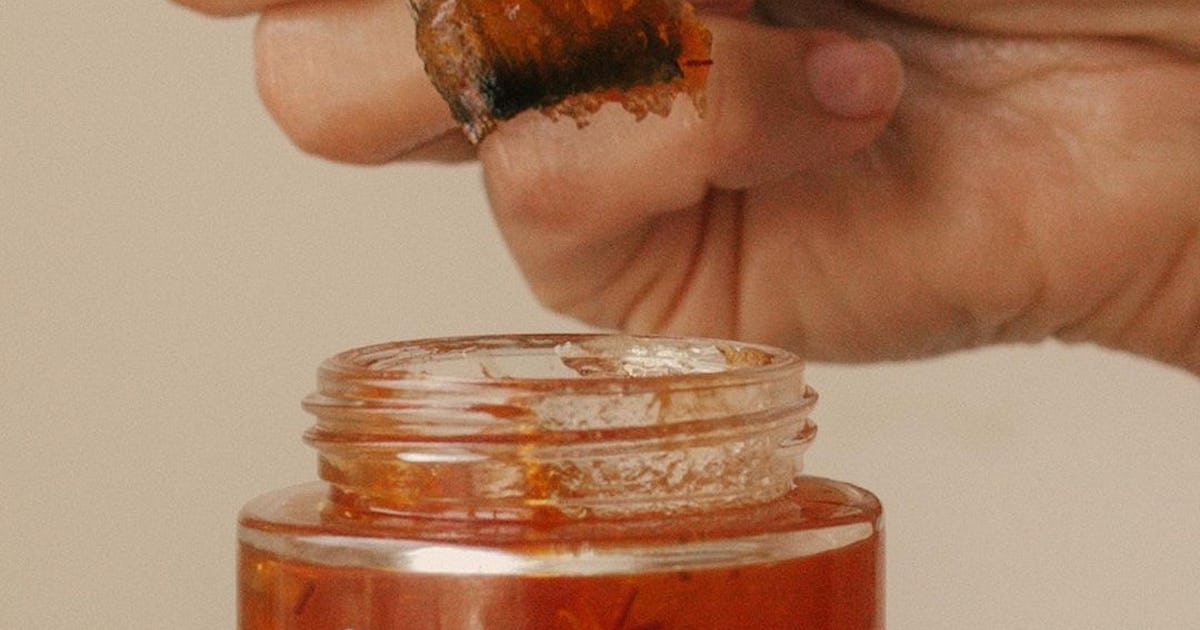“If you feel we stay in the land of the free of charge, you really should check out to be black like me.” This is the refrain to state singer Mickey Guyton’s 2020 track “Black Like Me,” and a focal stage of the New Yorker’s most current aspect piece on Guyton, titled, “Mickey Guyton Usually takes On the Mind-boggling Whiteness of Place Songs.” The gist of the post is very straightforward: place music is racist, and it requires to be disrupted from within by woke artists like Guyton.
Predictably, “Black Like Me,” gained a nomination for Greatest Place Solo General performance at the 2021 Grammy Awards. In 2020, Guyton co-hosted the Academy of Country Music Awards with Keith City, wherever she was nominated for the New Woman Artist of the Year award, and all through Blackout Tuesday in 2020, Spotify place “Black Like Me” at the leading of the Very hot Nation playlist.
Even however Guyton’s music are glorified by corporate country and the company media, each day nation admirers, like myself, haven’t accurately clicked with her tunes or liked the simple fact that region radio is regularly shoving it down our throats.
First of all, “Black Like Me” is based mostly on the lie that the American desire does not exist for black or brown Us residents. Having a site out of the BLM mission statement, Guyton’s track overtly maintains that our country is institutionally racist, has produced small to no development because slavery, and if you have melanin in your pores and skin, you may perhaps as well cease attempting. Essentially, if the 1619 challenge were being a place song, “Black Like Me” would be it.
But then all over again, hopeless victimhood dependent on left-wing lies are kind of Guyton’s brand name. Listed here are the lyrics to her 2020 one “What Are You Gonna Convey to Her,” a music about how females, particularly black women of all ages, will hardly ever make it in the environment for the reason that of sexism:
She thinks everyday living is fair and
God hears each prayer
And everybody will get their at any time just after
She thinks enjoy is adore and if
You work tough, which is adequate
Skin’s just pores and skin and it does not matter…
But what are you gonna notify her
When she’s mistaken?…
Do you just let her faux
That she could be the president?
Would it assistance us get there any quicker?
Do you let her assume the deck’s not stacked?
These whiney lyrics presently look dated given that most of us assume Kamala Harris is poised to turn into the first female black president inside the yr due to Biden’s rapid mental drop.
Guyton’s songs is based on a divisive falsehood. Additionally, there is genuinely very little that tends to make her tracks in any way exceptional or even state. Her sound is significantly more pop than twangy or rootsy, it does not have a special or interesting melody, and her lyrics are pedestrian, albeit really progressive.
The dilemma with Guyton and the Brooklyn-primarily based creator of the New Yorker report, Amanda Petrusich, is that neither of them feel to have an understanding of anything at all about state music or fly-about The united states in typical.
Petrusich psychoanalyzes place audio, declaring the style has “shifted from mirroring white anxieties to seeding them.” With no proof, she writes that state songs “establish[es] racial divides.”
She also says place music is “often predicated on thoughts of nostalgia for an imagined rural previous, in which lifetime moved much more slowly and gradually and the continuation of tradition was paramount,” incorporating that “This kind of longing for a bygone era is hardly ever a Black practical experience, in aspect due to the fact the fantasy of the ‘good previous days’ tends to predate the civil-legal rights movement.”
I’ll begin by declaring that exterior of Brooklyn, Amanda, rural The usa does, in point, exist, and as of 2020, 57.2 million folks dwell in it.
Petrusich’s politically inspired stereotyping of the style prevents her from knowledge the stunning fundamental reality guiding reliable nation music. State music is not racist, it is regional. Non-corporate place offers listeners a glimpse into the daily lives of distinctive voices from exceptional areas across the nation. That is why country audio has so numerous sub-genres (bluegrass, crimson filth, honky-tonk, Texas, Tex-Mex/Tejano, outlaw, folk etc.).
Consider, for case in point, Emily Scott Robinson’s “Westward Bound,” a stunning song about the The us “that the Interstate left driving.”
Go the corn fields and the UFO museum
Minor church buildings washed in white
With names like Holy Restoration
Tabernacle of Eternal Lifestyle
In the mountains of New Mexico
I cross the Good Divide
Flip by way of the empty radio
And generate on through the evening
Or “Coal Place” a music by Charles Wesley Godwin, a native to West Virginia, whose songs captures the splendor, tradition, and ache of the Appalachian hills:
It set a roof above my head
And the armor on the tanks in Normandy
The lights shone vibrant in the fingers of its treatment
From the western skies to Washington D.C
Now it lies broken, higher, and chilly
In its grave of Appalachian stone
Coal State
Now we don’t have to have tokens to a firm retail store
Which is what federal government stamps and codeine’s for
We might have received a handful of battles, but we dropped the war
Now we’re slaves and inadequate
State music also has an uncanny potential to capture the day to day human knowledge. Flatland Cavalry is a people band known for its use of the typically overlooked fiddle, employing it for upbeat tunes and blue ballads. One particular of my favorites is “Sleeping By itself.” It is easy and depressing and clever all at when.
Counting constellations on the popcorn ceiling
And staring at your photo on the wall
Rays of lonely moonlight bit by bit slice through the blinds
As the tears start off to slide
I’m drained of sleeping by itself
And I just wanna be where you are
Tired of expressing goodnight as a result of the mobile phone
And waking up each individual morning in the darkish
Greater say a prayer
Turn out the light
Sigh and hug my pillow restricted
I’ll be with you before long my pricey
If only in my desires
Sadly, tunes like the ones outlined above do not usually get played on place radio. Pop country audio like Guyton’s is reflective of a many years-long and increasing pressure inside of the state music market. Inspired by even bigger profits, Nashville executives prop up rap-nation and pop-nation singers so that they can appeal to a larger, cross-style audience. For that reason, more traditional regional place artists get forgotten by the increasing monolithic company place seem, leaving rarely any difference among your neighborhood pop and state stations.
Uplifting artists who use regular, regional sounds would be a favourable adjust for the market. But Guyton couldn’t care fewer about the having difficulties nation artists fighting the Nashville equipment mainly because she is section of that device. She is just about every self-conscious, self-loathing Nashville executive’s affirmative motion desire. Her mediocre, politically stylish music has benefited immensely from the corporate obsession with “diversity” that is now infecting place tunes.
Indeed, The New Yorker’s Petrusich problems that: “Guyton’s advocacy is so vigorous that it often hazards overshadowing her artistry.” But you can be absolutely sure Nashville’s virtue signaling executives are not truly apprehensive about artistry. They want her politics upfront and center as a protect versus the risk of remaining called racist.
Guyton rather evidently has zero regard for or any knowing of the genre she statements to be part of. She stereotypes all of region music and shames it for not hitting the appropriate intersectional checkmarks. “It’s not plenty of for just one particular to make it listed here and there — it requires to be a sea of Black women of all ages, a sea of Latina females, a sea of L.B.G.T.Q. artists,” Guyton tells the New Yorker. “If we never see that, then it is just gonna be the same white guy in a pickup truck with a ball cap, possibly some sneakers.”
The panic over the underrepresentation of black singers is a developing issue for corporate region. Guyton understands this and she is making use of it to her benefit.
To be clear, there are a lot of proficient black place stars like Darius Rucker, Yola, Cowboy Troy, Kane Brown, and Jimmie Allen. Aversion to Guyton’s audio particularly does not make another person a racist. I love Yola’s “Ride Out In The Region,” due to the fact it is simple, soulful, and perfect for, as she sings, “get[ing] a trip out in the state.” By distinction, “Black Like Me” is politically charged, unremarkable, and a pop track.
One thing I really don’t hear Guyton or Petrusich complaining about is the large above-illustration of black artists in R&B, rap, hip-hop, funk, and blues. Is that racism, as well? No, simply because that doesn’t in good shape the crucial race idea narrative. There is zero evidence that nation music is perpetuating racism in America, just like the overrepresentation of black artists in numerous other genres is not perpetuating racism.
Place songs showcases existence, houses, families, traditions, pains, and joys of men and women who have a tendency to are living in, as Robinson sings, “the The united states that the interstate remaining behind.” Leftists never want to amplify the voices and messages uncovered in place new music since it tends to run counter to their objective of setting up a cultural reset. They want to reimagine the style on their terms. It’s component of the cause why they cheer on the damaging mother nature of rap and bro-nation. It’s also why they fawn around b-record woke singers like Guyton.
As a Latina female, I hardly ever discovered that my race inhibited my capacity to love state audio. I didn’t have to be white or improve up on a farm to like Alan Jackson’s “Gone Region,” or take into account myself a redneck to blast Gretchen Wilson’s “redneck woman” as I’m driving down the freeway. For me, it was under no circumstances about skin color.
I gravitate towards region due to the fact of its amazing tale-telling powers, its potential to seize human emotion and the everyman’s expertise, and for the reason that it reflects my values. Very good state music is truthful, uncooked, American, and for all these good reasons, worthy of safeguarding from people who seek to demolish it.
Evita Duffy is an intern at The Federalist and a junior at the University of Chicago, wherever she scientific tests American History. She loves the Midwest, lumberjack athletics, producing, & her family members. Comply with her on Twitter at @evitaduffy_1


















/https://specials-images.forbesimg.com/imageserve/604ad3acf728cc29468fec2e/0x0.jpg?cropX1=0&cropX2=846&cropY1=47&cropY2=523)
![See Inside the Amazing Homes of State Music’s Queens [Pics]](https://townsquare.media/site/204/files/2020/08/tim-mcgraw-faith-hill-mansion-california-pictures.jpg?w=1200&h=0&zc=1&s=0&a=t&q=89)









